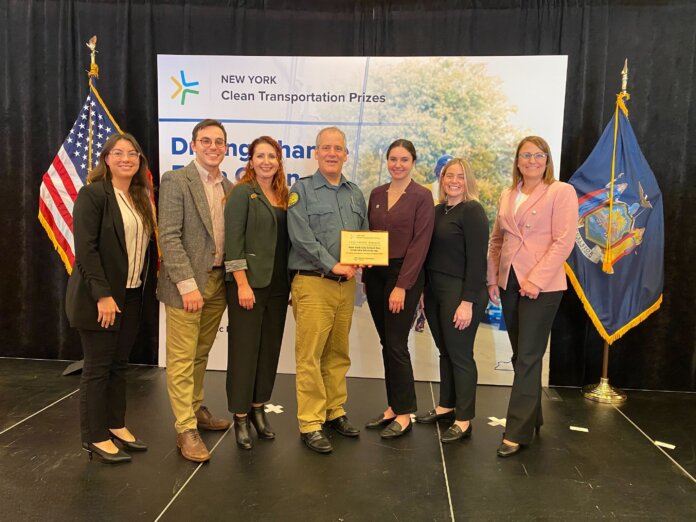The New York City School Bus Umbrella Services (NYCSBUS) has selected The Mobility House to manage electric vehicle charging and vehicle-to-grid (V2G) operations for the largest V2G school bus electrification project in the state.
Awarded $8 million by the New York State Energy Research and Development Authority‘s (NYSERDA) New York Clean Transportation Prizes program, NYCSBUS will leverage The Mobility House’s charge and energy management system, ChargePilot, to optimize infrastructure planning and operation for 30 electric school buses deployed at the Bronx’s Zerega Avenue depot. The Mobility House’s modeling estimates NYCSBUS will save $70,000 to $160,000 annually with managed smart charging.
“We are excited to work with The Mobility House, thanks to generous funding from NYSERDA, to serve as the blueprint for how to rapidly scale school bus electrification in New York to meet the state’s ambitious goals,” says Matt Berlin, CEO of NYCSBUS. “The Mobility House is the most proven charge management provider in this space, and we appreciate their partnership in planning and implementing charging infrastructure to drive towards the electric future.”
Learnings and data from this project, gathered by The Mobility House and partners, will provide statewide resources that align with New York’s electric school bus mandate for 2035 and NYCSBUS’s goal of electrifying its 850 school buses by 2030, including the near-term support for electrification transitions at two additional school districts. Additional project partners include World Resources Institute, CALSTART, Bronx Community College, New York League of Conservation Voters and South Bronx Unite. NYCSBUS is expected to receive the first 10 electric school buses in 2023, with the next 20 electric buses to follow.
Responsible for managing all charging infrastructure at the Zerega Avenue depot, with 30 chargeports planned, The Mobility House’s ChargePilot adjusts the charging rate of electric school buses according to real-time travel schedules, as well as the local utility rates, to deliver charging at the lowest cost to the district. ChargePilot will also support the bidirectional charging operations at the site that can provide additional revenue for the district and local energy resilience once implemented.
“The electrification of our transportation services is fundamental to improving health and climate conditions and offers a key opportunity to prioritize historically underserved communities who continue to suffer disproportionately the effects of air pollution,” mentions Sue Gander, director of the Electric School Bus Initiative at WRI. “The vehicle-to-grid integration aspect of this project is particularly exciting, as it will demonstrate how electric school bus batteries can strengthen energy security and community resilience.”





